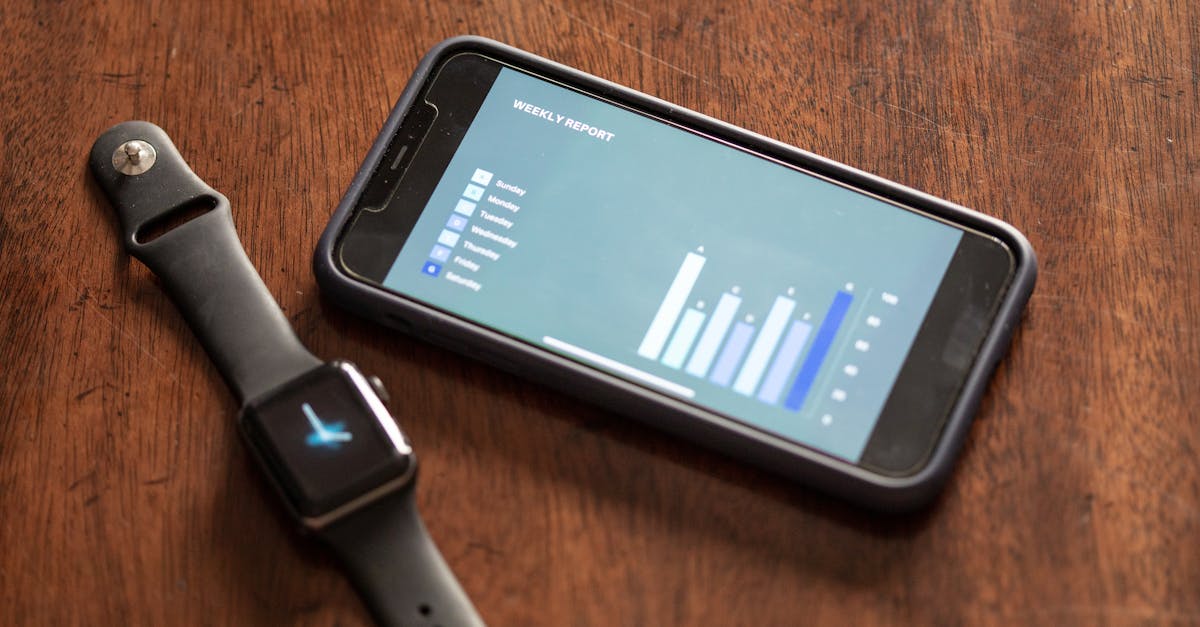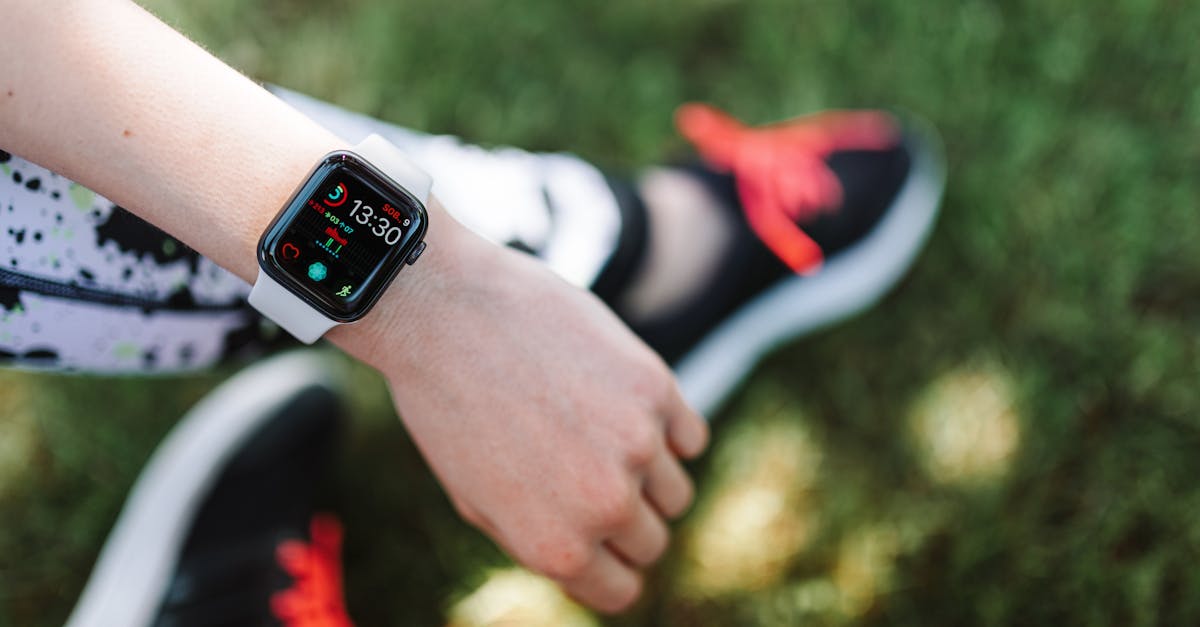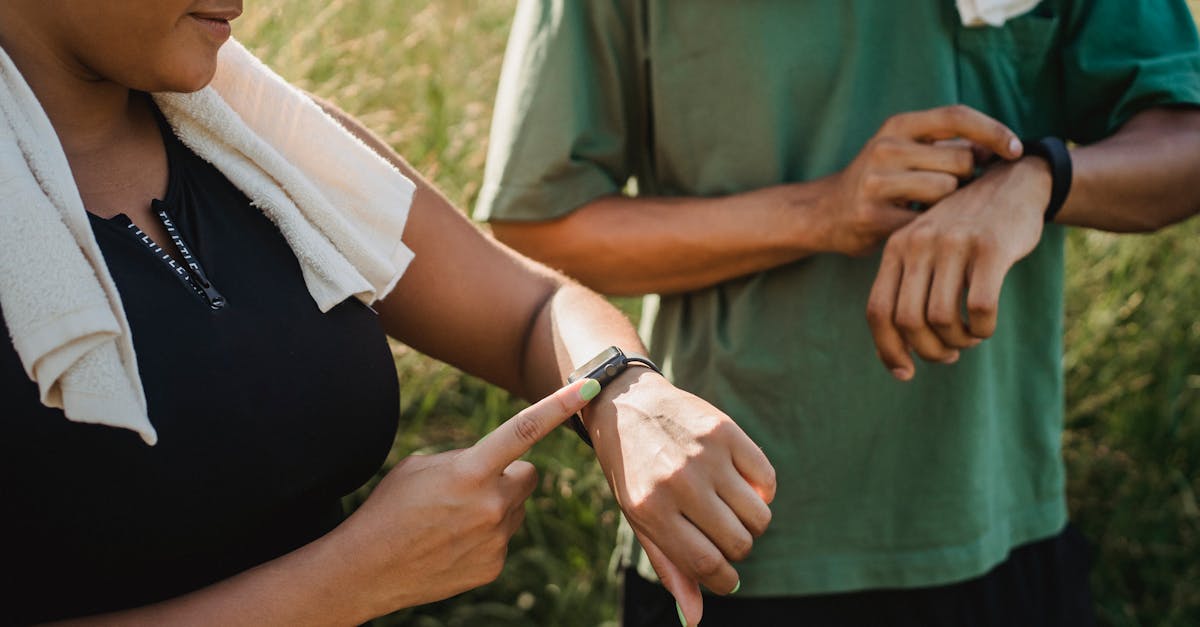Data for Days: Using Your Smartwatch to Find the Real Keys to Weight Loss
In the age of technology, the quest for effective weight loss has found a powerful ally in the form of smartwatches. These sleek devices, worn on the wrist, are more than just timekeepers; they are gateways to a wealth of data that can transform the way we approach health and fitness. By meticulously tracking various metrics such as heart rate, calorie expenditure, and sleep patterns, smartwatches provide a comprehensive overview of one's physical state. This article aims to unravel how these digital companions can unlock the secrets to successful weight management, offering insights into how data-driven approaches are revolutionizing personal health journeys.
Understanding Baseline Metrics for Effective Goals

To embark on a successful weight loss journey, understanding your baseline metrics is crucial. Smartwatches collect data on various physical activities and physiological responses, helping users identify their starting point. Knowing your average daily steps, resting heart rate, and caloric intake can set the stage for realistic goal-setting. By establishing this baseline, users can tailor their fitness plans to their unique needs and capabilities. This personalized approach ensures that the goals set are not only achievable but also sustainable, providing a clear roadmap for progress and improvement over time.
The Role of Heart Rate Monitoring in Weight Management

Heart rate monitoring is a cornerstone feature of smartwatches that offers invaluable insights into cardiovascular health and exercise efficiency. By tracking heart rate zones during workouts, users can optimize their exercise routines to maximize fat burning. Smartwatches alert users when they are in the ideal heart rate zone for weight loss, ensuring that workouts are both effective and safe. Additionally, understanding resting heart rate trends can provide early warnings of overtraining or health issues, allowing for timely adjustments to exercise regimens. This data-driven approach empowers users to exercise smarter, not harder.
Caloric Expenditure and Intake: Balancing the Equation

Weight loss fundamentally revolves around the balance between calories consumed and calories burned. Smartwatches offer precise tracking of daily caloric expenditure through activity monitoring. Coupled with apps that log dietary intake, users can maintain a balanced caloric equation. This tracking helps identify patterns and behaviors that may hinder weight loss, such as underestimating portion sizes or overindulging in high-calorie foods. By providing a clear picture of caloric balance, smartwatches enable users to make informed dietary choices, ensuring that caloric intake aligns with weight loss goals.
Sleep Tracking: The Unsung Hero of Weight Loss

While often overlooked, sleep plays a critical role in weight management. Smartwatches offer detailed insights into sleep quality and duration, highlighting patterns that may affect weight loss efforts. Poor sleep can disrupt hormonal balance, leading to increased hunger and decreased motivation for physical activity. By monitoring sleep stages and disturbances, users can identify factors impacting their rest and make necessary lifestyle adjustments. Prioritizing quality sleep, facilitated by smartwatch data, can enhance metabolic function and support sustained weight loss.
Stress Management: Monitoring and Mitigating Its Impact

Stress can significantly impede weight loss efforts, often leading to emotional eating and decreased motivation for exercise. Many smartwatches now include stress monitoring features, using heart rate variability to assess stress levels. By identifying stress triggers and patterns, users can implement strategies such as mindfulness or breathing exercises to mitigate its impact. Managing stress effectively not only supports mental well-being but also aids in maintaining a healthy weight by reducing cortisol levels, which are linked to increased fat storage.
Motivation and Accountability: The Power of Data Sharing

One of the most powerful aspects of smartwatches is their ability to foster motivation and accountability. By sharing data with friends, family, or online communities, users can create a support network that encourages progress and celebrates achievements. Many smartwatches offer challenges and social features that motivate users to stay active and engaged. This sense of community and competition can be a driving force in maintaining consistent exercise and dietary habits, ultimately leading to successful weight loss outcomes.
Analyzing Long-Term Trends for Sustainable Weight Loss

Smartwatches not only provide immediate feedback but also offer the ability to analyze long-term trends. By reviewing historical data, users can identify successful strategies and areas needing improvement. This long-term perspective allows for the fine-tuning of fitness and dietary plans, ensuring they remain effective over time. Understanding personal trends in activity, sleep, and stress can help users anticipate challenges and adapt accordingly, fostering a sustainable approach to weight loss that aligns with lifestyle changes rather than temporary fixes.
Embracing Technology for Healthier Living

Smartwatches offer a comprehensive suite of tools that empower users to take control of their weight loss journey. By leveraging data on activity, heart rate, sleep, and stress, individuals can make informed decisions that support healthy, sustainable weight loss. The integration of technology into daily life not only enhances personal accountability but also provides a deeper understanding of one's body and health. As we continue to embrace digital solutions, smartwatches stand out as invaluable allies in the pursuit of healthier living, offering data for days that illuminate the path to achieving weight loss goals.
